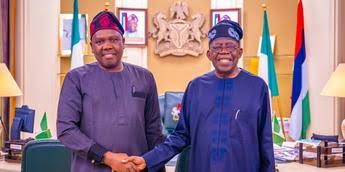My time in the development sector influenced my understanding of the power of storytelling. As a journalist, I’ve always valued the ability of stories to inform and engage, but working in development revealed their potential to drive real change.
You see, in the development space, storytelling isn’t just about raising awareness; it’s about inspiring action. It bridges the gap between problems and solutions by showing the human side behind the statistics. This became clear during my three years with two nonprofits. I witnessed how storytelling could build empathy, connect emotionally with audiences, and motivate people—from donors to local communities—to act.
Connected Development [CODE], founded by Hamzat B. Lawal (Hamzy), exemplifies storytelling’s power in development. Through their #FollowTheMoney initiative, CODE has empowered communities by sharing their stories of marginalisation, poor infrastructure, and lack of basic services, using these narratives to hold the government accountable.
By highlighting the struggles of rural dwellers, CODE has created urgency around issues like lead poisoning, environmental degradation, access to clean water, and education. Their well-written stories have raised awareness and prompted action from policymakers, driving improvements in basic infrastructure in neglected communities.
Kevwe Oghide, CODE’s former communications director, was key to their storytelling success. She ensured CODE’s communication strategy centred on powerful narratives, understanding that data alone wouldn’t suffice. What was needed was storytelling that brought numbers to life by giving voice to those affected.
Under Kevwe’s direction, CODE’s storytelling highlighted interventions in rural education in northern Nigeria and environmental degradation in the Niger Delta. In northern Nigeria, where education remains challenging, CODE told stories of children lacking basic learning facilities. This brought these issues to the forefront, mobilising resources and support for rural schools and improving education access in underserved areas.
In the Niger Delta, where oil exploration has devastated communities, CODE’s storytelling brought global attention to those living with polluted water, destroyed farmlands, and health hazards. These stories showed the human cost of environmental degradation and advocated for sustainable solutions, playing a major role in mobilising support and funding for environmental restoration projects.
If you’re a journalist looking to pivot to the development space, you might want to enhance your storytelling skills, research about the sector and volunteer.
You see, my development experience taught me that storytelling is a powerful tool for advocacy and change. As I returned to journalism, this lesson continues to influence my work whether investigating health, covering education, or reporting on gender justice.
#storytelling #CommsForDevelopment #journalism #NeverSettle





























